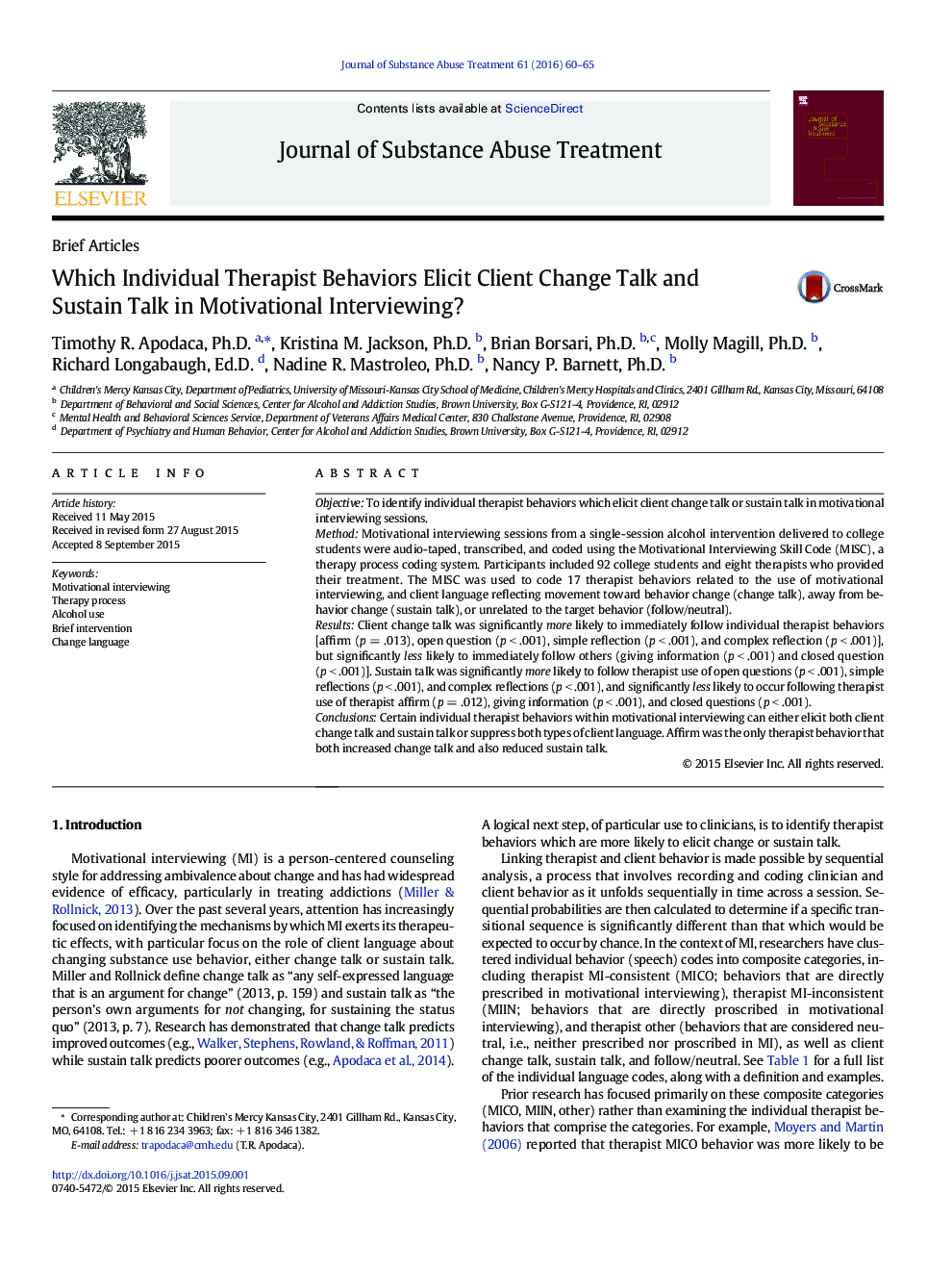| کد مقاله | کد نشریه | سال انتشار | مقاله انگلیسی | نسخه تمام متن |
|---|---|---|---|---|
| 329595 | 543558 | 2016 | 6 صفحه PDF | دانلود رایگان |
• Motivational interviewing (MI; Miller & Rollnick, 2013) is a person-centered counseling style for addressing ambivalence about change and has had widespread evidence of efficacy, particularly in treating addictions.
• Certain individual therapist behaviors, or micro-skills, within motivational interviewing can either elicit both client change talk and sustain talk or suppress both types of client language.
• Affirmations, in which the therapist says something positive or complimentary to the client, was the only therapist micro-skill that both increased change talk and also reduced sustain talk.
• The use of any skills consistent with MI is recommended, but in particular, the use of reflections (both simple and complex) and open questions may be the most efficient way to facilitate discussion of the pros and cons of the target behavior.
ObjectiveTo identify individual therapist behaviors which elicit client change talk or sustain talk in motivational interviewing sessions.MethodMotivational interviewing sessions from a single-session alcohol intervention delivered to college students were audio-taped, transcribed, and coded using the Motivational Interviewing Skill Code (MISC), a therapy process coding system. Participants included 92 college students and eight therapists who provided their treatment. The MISC was used to code 17 therapist behaviors related to the use of motivational interviewing, and client language reflecting movement toward behavior change (change talk), away from behavior change (sustain talk), or unrelated to the target behavior (follow/neutral).ResultsClient change talk was significantly more likely to immediately follow individual therapist behaviors [affirm (p = .013), open question (p < .001), simple reflection (p < .001), and complex reflection (p < .001)], but significantly less likely to immediately follow others (giving information (p < .001) and closed question (p < .001)]. Sustain talk was significantly more likely to follow therapist use of open questions (p < .001), simple reflections (p < .001), and complex reflections (p < .001), and significantly less likely to occur following therapist use of therapist affirm (p = .012), giving information (p < .001), and closed questions (p < .001).ConclusionsCertain individual therapist behaviors within motivational interviewing can either elicit both client change talk and sustain talk or suppress both types of client language. Affirm was the only therapist behavior that both increased change talk and also reduced sustain talk.
Journal: Journal of Substance Abuse Treatment - Volume 61, February 2016, Pages 60–65
